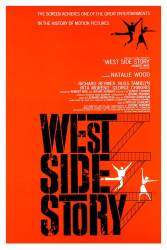
Question: Why did they use actors who couldn't sing in the leading roles? Wouldn't it be easier to cast people who could sing instead of dubbing with other singing voices?
Answer: Natalie Wood was more well-known. And Wood actually COULD sing, she just couldn't hit the high notes perfectly. In fact, she was told only some of her singing would be dubbed.
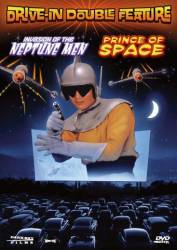
Question: As usual, Tokyo being destroyed - this time by the Neptune Men in their flying saucers. Buildings exploding...but one particular building has a large picture of Adolf Hitler giving the Nazi salute and with the wrong wording of Mine Kampf (instead of the correct Mein Kampf)...why was this particular building model constructed? (01:03:27)
Answer: Your question was intriguing, so I did a little Internet research. While there's plenty of conjecture, nobody seems to know what this is about. There is some reference to Hitler's "Mein Kampf" being published in Japan for the first time in the early 1960s, around the time the film was made. Some speculate it was some type of advertising for the book (early product placement?) while others believe it could be a symbolic act of blowing up Hitler's ideals and could explain why it was misspelled.
Ray's answer on the subject is already exhaustive. I'll add for further clarification that the advertising apparently was for "Den blodiga tiden", or, well, Mein Kampf, Erwin Leiser's documentary about the infamous book. I can't find the primary source for it, but it appears credible since the release date of the documentary in Japan was in January of the same year. Also, I do think that given the egregious misspelling, someone should post it also in the mistakes section, even if it was not made by the moviemakers, technically.
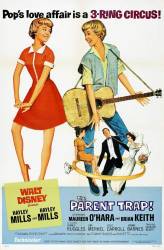
Question: What kind of judge would agree to this kind of custody arrangement?
Answer: None. It's total fiction made up solely for the purpose of the movie. Even for a movie, it's far beyond the "suspension of disbelief" that siblings would ever be divided up between the two parents, and neither would have no contact with them, much less be prevented from knowing they had a brother or sister.
It was during the 1960s, the courts had no way of forcing parents to share children. They could have very easily just stayed away from each other out of the view of the judicial system.
This is what I always assumed as well. That this wasn't decided by court, the parents decided this on their own and did not bring it up to the court.
There has actually been a history of separating identical twins as babies, as there has been a fascination in studying what ways they'd be alike, and how they'd be different. During this time period, there were even agencies that would pay women who gave birth to identical twins to give them up for adoption, and have them be adopted in separate families. In today's world, this would not happen, but I wouldn't put it past a judge back in the 1960s.
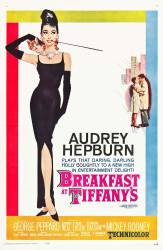
Question: When Paul knocks on Holly's door and she isn't wearing anything, she says to him "would you turn around? Oh, never mind, it's such a silly line anyway - I'll turn around instead." What joke is she referring to?
Answer: Holly is referring to the fact that people often ask others in the room "Will you turn around?" when they are dressing or in the nude, so the person cannot see them naked. She is simply stating she thinks it is odd that the second person is always asked to turn around, when the person herself could turn around.
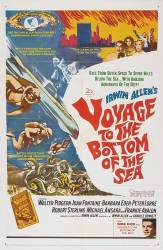
Question: What does Admiral Nelson have in his left shirt pocket?
Answer: Admiral Nelson is puffing on cigars in a few scenes, and his cigars are even a source of dialogue in the film. Specifically, when his quarters catch on fire, the blaze is initially blamed on a lit cigar, to which Nelson angrily replies that he ran out of cigars before the fire ever occurred. So it's a pretty good bet that Nelson was carrying a cigar (or cigars) in his shirt pocket.
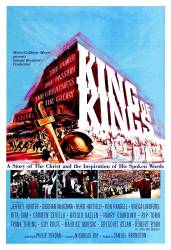
Question: How did anyone ascertain that Orson Welles read the spoken narrative in this film and that it was written by Ray Bradbury? Similarly, how did they come to know that Agnes Moorhead coached Jeffrey Hunter with dialogue? None of these persons feature in the credits though things like the choreography for Salome's dance are printed.
Answer: In the introduction he wrote for Ray Harryhausen's book, 'Film Fantasy Scrapbook', Bradbury mentions writing Orson Welles' narration for 'King of Kings'. A number of online sources cite Agnes Moorehead as coaching Hunter on the post-filming dialogue. She had years of experience performing in radio drama and had a Master's degree in Public Speaking. She likely coached other actors. Not every person involved in a film's production is credited and a voice coach is not a particularly significant role, even for a notable actress. Bradbury was not the screenwriter and only wrote the narration. Scripts often have multiple writers (i.e. script doctors) who are uncredited. Welles demanded more money to allow his name be listed in the cast credits, so the studio left him uncredited. Even uncredited, his voice is quite recognizable.
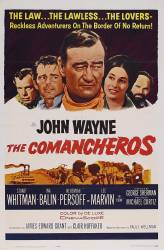
Answer: People would not come to the theater to see Marnie Nixon despite the fact that she has sung the lead roles in West Side Story, The King and I, and My Fair Lady. They'd rather see that darling girl from "Miracle on 34th Street" again (or Deborah Kerr or Audrey Hepburn) than an unknown with actual talent.
Myridon